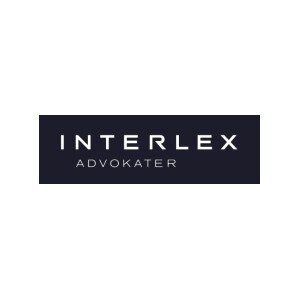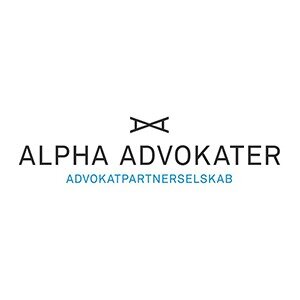Best Tax Increment Financing Lawyers in Denmark
Share your needs with us, get contacted by law firms.
Free. Takes 2 min.
Or refine your search by selecting a city:
List of the best lawyers in Denmark
About Tax Increment Financing Law in Denmark
Tax Increment Financing (TIF) is a financing mechanism used primarily to promote redevelopment in underdeveloped or blighted areas. In Denmark, TIF is less prevalent compared to the United States but is gaining attention as a tool to stimulate local economic development. It involves using the future incremental tax revenues generated from an increased property value to finance infrastructure and other community-improving projects. The Danish approach typically involves intricate legal and financial planning frameworks to ensure compliance with national regulations and public policy objectives.
Why You May Need a Lawyer
Engaging a lawyer specializing in Tax Increment Financing might be crucial in several situations:
- To negotiate with municipal authorities or financial institutions regarding the terms of the TIF district.
- If you are a developer seeking to utilize TIF for a project, legal expertise is needed to navigate complex regulatory requirements.
- Understanding the implications of TIF agreements on property taxes and other financial obligations can be complex, requiring professional legal advice.
- Resolving disputes regarding the interpretation of financing terms or obligations in TIF agreements may require legal intervention.
Local Laws Overview
The key aspects of local laws relevant to Tax Increment Financing in Denmark involve a mixture of municipal funding structures, national tax laws, and property development regulations:
- Danish municipalities have some discretionary powers to create TIF districts, but they must strictly follow national guidelines that ensure transparency and financial responsibility.
- Specific legislation may provide frameworks for economic growth policies, which include provisions for TIF-related initiatives.
- Environmental and urban planning laws play a significant role in shaping TIF projects, requiring conformity to broader land use policies.
- Financial legislation pertaining to municipal bonds or loans might intersect with TIF arrangements, necessitating comprehensive legal knowledge in these areas.
Frequently Asked Questions
What is Tax Increment Financing in basic terms?
Tax Increment Financing involves using anticipated future tax revenues from increased property values in a designated area to fund current infrastructure or development projects.
Is TIF widely used in Denmark?
While not as prevalent as in some other countries, interest in TIF is increasing in Denmark, especially in urban redevelopment and regeneration efforts.
Can residential areas be included in TIF districts?
Yes, residential areas can be included, but they must align with specific criteria set out by both municipal and national regulations.
What are the advantages of TIF?
Advantages include spurring economic development, improving infrastructure, and increasing property values without raising taxes immediately.
Are there any risks associated with TIF?
Risks include project delays, potential cost overruns, or insufficient future tax revenues to cover the upfront costs.
Who can initiate a TIF project?
TIF projects are typically initiated by municipal governments, possibly in partnership with developers or community groups.
How does TIF impact local tax rates?
Ideally, TIF should not directly increase existing tax rates; however, it uses future tax revenue growth to fund current projects.
Can existing businesses benefit from TIF?
Yes, existing businesses might benefit from improved infrastructure and increased customer traffic in areas revitalized by TIF projects.
What does the legal process of establishing a TIF district involve?
The process involves economic assessments, public consultations, drafting of development plans, and obtaining necessary municipal and governmental approvals.
Are there alternative financing mechanisms similar to TIF available in Denmark?
Other than TIF, mechanisms such as public-private partnerships (PPPs) and municipal bonds are used for financing development within Denmark.
Additional Resources
Here are some resources and organizations that may be helpful:
- The Danish Ministry of Industry, Business and Financial Affairs often publishes guidelines on urban development financing.
- The Danish National Building Research Institute offers comprehensive urban planning and redevelopment resources.
- Local Municipality websites often have sections devoted to community and economic development initiatives.
- Consulting with the Danish Association of Local Government might provide insights on current TIF practices and policies.
Next Steps
If you believe that Tax Increment Financing might be beneficial for your project or community, consider the following steps:
- Conduct a preliminary assessment to determine if a TIF district could be viable in your area.
- Reach out to your local municipal planning department to discuss the possibility of TIF in your community.
- Contact a lawyer with expertise in Danish property law and municipal finance to understand the legal implications and requirements.
- Participate in workshops or seminars about economic development to learn more about how TIF and other financing tools work.
Lawzana helps you find the best lawyers and law firms in Denmark through a curated and pre-screened list of qualified legal professionals. Our platform offers rankings and detailed profiles of attorneys and law firms, allowing you to compare based on practice areas, including Tax Increment Financing, experience, and client feedback.
Each profile includes a description of the firm's areas of practice, client reviews, team members and partners, year of establishment, spoken languages, office locations, contact information, social media presence, and any published articles or resources. Most firms on our platform speak English and are experienced in both local and international legal matters.
Get a quote from top-rated law firms in Denmark — quickly, securely, and without unnecessary hassle.
Disclaimer:
The information provided on this page is for general informational purposes only and does not constitute legal advice. While we strive to ensure the accuracy and relevance of the content, legal information may change over time, and interpretations of the law can vary. You should always consult with a qualified legal professional for advice specific to your situation.
We disclaim all liability for actions taken or not taken based on the content of this page. If you believe any information is incorrect or outdated, please contact us, and we will review and update it where appropriate.
Browse tax increment financing law firms by city in Denmark
Refine your search by selecting a city.

















